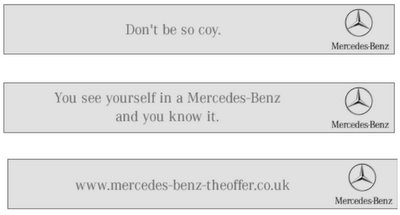Lose "Consumer" From Your Language
This is an earnest plea to everyone who works in marketing to carefully consider their words. It’s a riff I picked up from the musings of Seth Godin, Doc “Cluetrain” Searls et al that I don’t think has received sufficient credence. Times have changed yet we are still using the marketing language of yesterday. The main culprit is that most turgidly robust of words, “consumer”. It’s refusing to die, but it should. It is entirely inappropriate in today’s marketing context.
Back in the early days of advertising, media choice was limited. The people of Britain had only one channel with adverts to sit in front of, blankly absorbing messages. And we lapped it up – we trusted ads and companies back then. They wouldn’t lie to us. So perhaps we deserved the term “consumer”. We were docile and passive. Like cattle chewing the cud of commercials. And “the consumer” is apparently still alive and well today.
Much is talked about media fragmentation, web 2.0 and generally an increasingly complex environment for marketing. In this new context, people do not buy in the way they used to. Cheap & fast internet access has set information free. People are becoming comfortable with, and highly adept at, identifying their ideal purchase for themselves. They research, they compare, they carefully select. If they like your product and brand enough they’ll even create their own ads and PR.
Does this sound like a passive, docile creature – a consumer? I suggest not. To me it is a far more predatory behaviour, far more sentient. People are actively hunting out the opinions of other like-minded souls and trusting this view more than the corporate message. We need to stop talking about “consumers”. The term is generic, mass-market and it does nothing to describe the purchaser of today, who is now an active participant in the media world.
But what is the alternative? Some people want to cling to “consumer” from what amounts to a brutal lack of imagination: “But what will we call people who are not customers?” The imagination-lacker has unwittingly answered the question adequately themselves – “people”. Or, if you must use jargon, then how about “prospects”, “suspects”, “potential customers”? My preference is for anything that reminds us that we are not marketing to a demographic or a database segment – we are always talking to human beings with brains just like ours.
I recently attended the IAB’s “Engage for Autos” conference. And very good it was too. The presentations were all delivered by web-savvy, smart people who know about media-fragmentation and how empowered the customer is and the necessity to engage individuals. And yet they all talked about the mass, generic “consumer”! It felt so wrong.
So please stop using the term “consumer”, unless of course you’re making a parody of what marketing used to be like in the bad old days.









